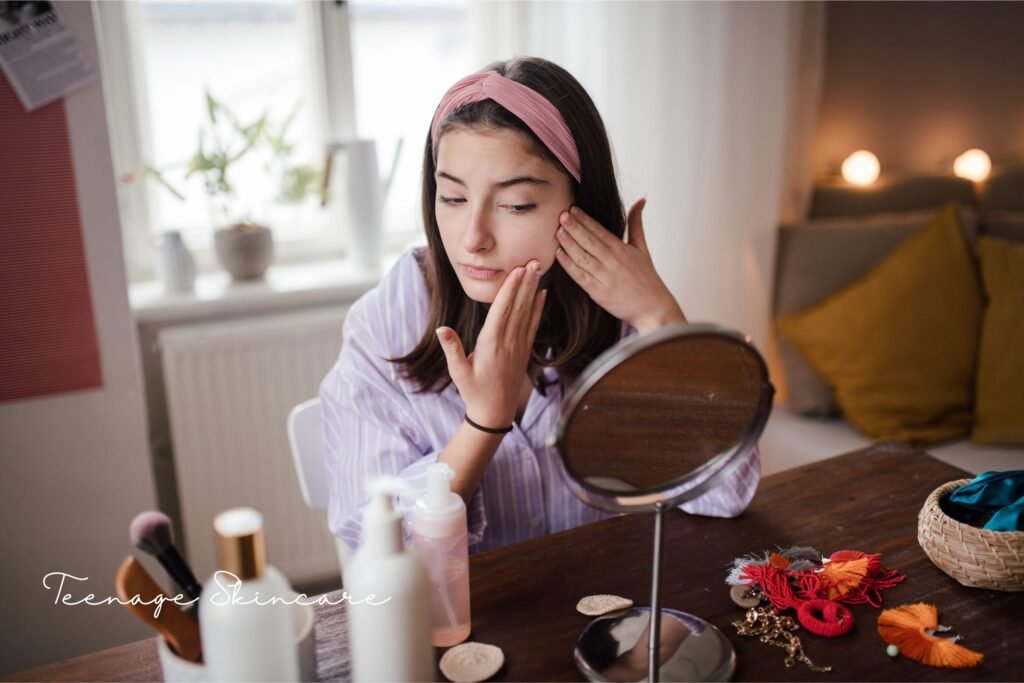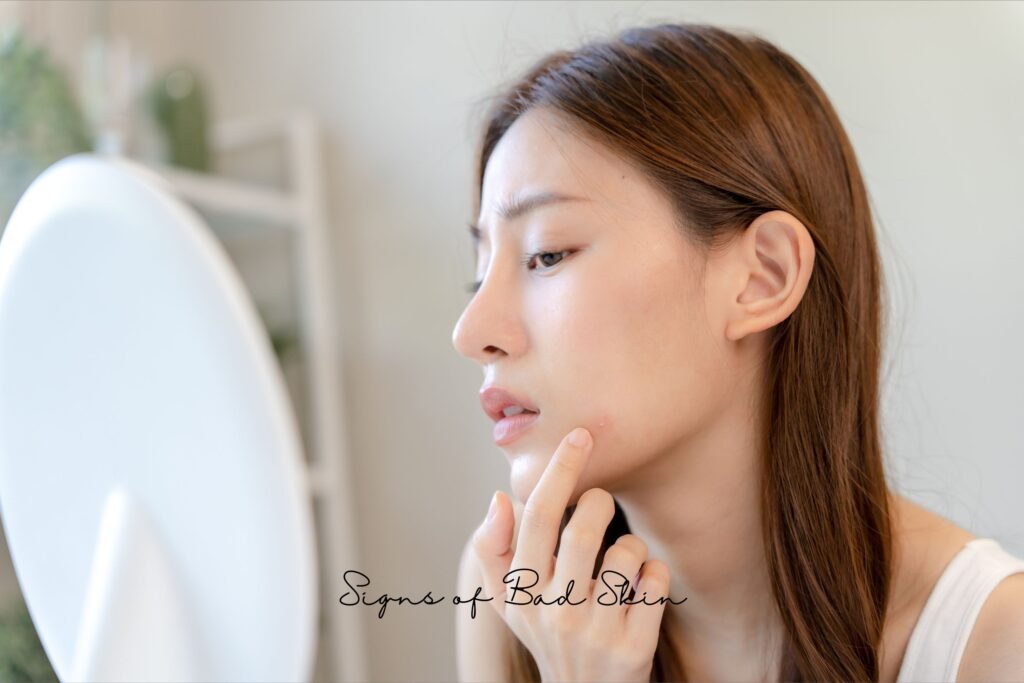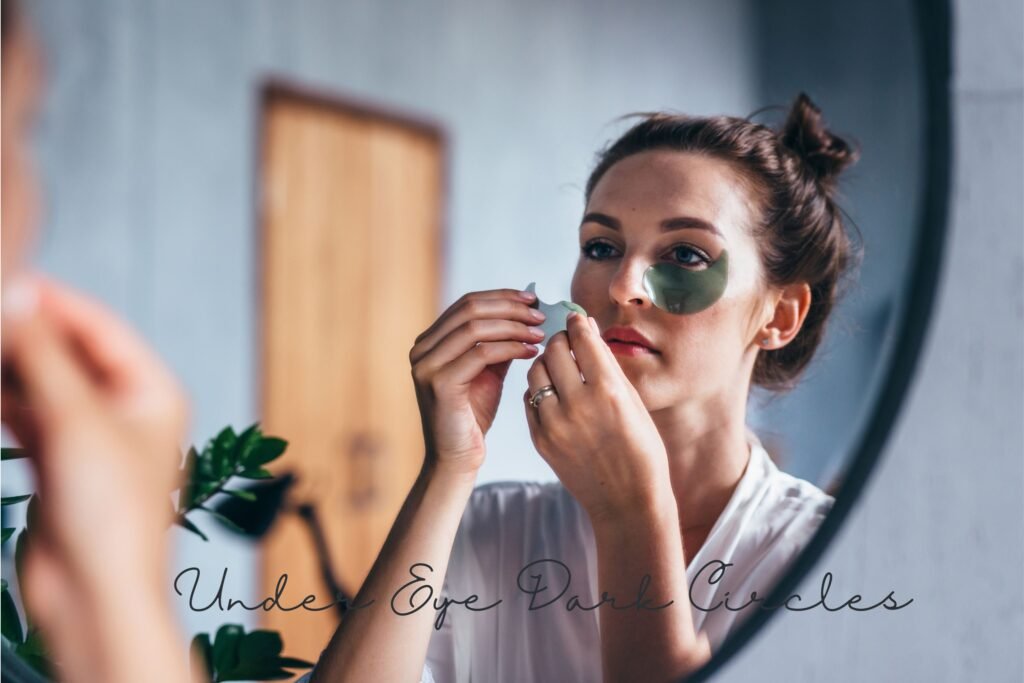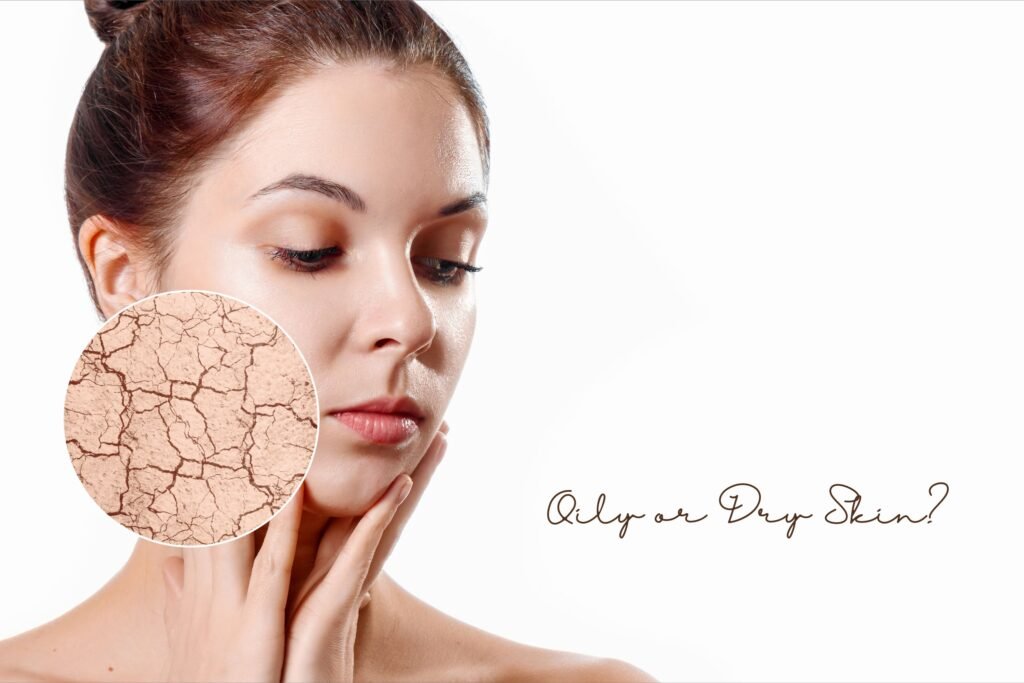Teenage years can be difficult. It’s hard for both parents and the teen. Their emotions, moods, body, and yes, their skin also face changes. With the coming of age, teenage skin undergoes various transformations. That’s why maintaining a skincare routine is important at this stage. But with the emergence of new skincare products on the market, it is very confusing to choose something that actually works.
Here, I am going to talk about a teenage skincare routine, what to do, and how to do it.
1. Understanding Skin Type
To establish an effective skincare routine, you must understand your skin type: dry, oily, or combination. With hormonal changes during puberty, skin issues like acne, blackheads, and whiteheads are common. To cope with all these situations, it is important to learn about your skin type.
How to do that? It’s pretty simple. Wash your face with any cleanser and pat it dry. Do not apply anything else on your face afterward. Wait for about 1-2 hours and see if your nose and chin area has any oil or not. If you don’t have any oil on your face and you’re feeling a bit dry and flaky, then you have dry skin. On the other hand, if it has produced oil, which looks shiny, then you have oily skin.
2. Basic Teenage Skincare Routine
Cleansing
Start and end your day with a gentle cleanser to remove dirt, oil, and impurities. Look for a product that suits your skin type.
Use a gel-based cleanser if you have oily skin. If you have dry skin, use a cream-based cleanser; it will keep your skin hydrated. If your skin is sensitive, meaning it reacts easily, then go for cleansers that are fragrance-free and do not contain any allergens.
Toning
Toners help to balance your skin’s pH levels and remove any leftover impurities after cleansing. Use alcohol-free toners. Natural toners are the best idea for teenage skin, as they have no chemicals. You can also make your own toners at home with rose petals and some ice.
Moisturizing
Moisturizing is crucial for all skin types, even oily skin. Moisturizer helps to lock in all the nutrients for your skin to absorb. Choose a lightweight, non-comedogenic moisturizer that won’t clog your pores. For dry skin, a richer, hydrating formula works best.
Sun Protection
Sunscreen is a must, regardless of the weather. Daily SPF helps protect your skin from harmful UV rays, preventing premature aging and reducing the risk of skin cancer. Look for a broad-spectrum SPF 30 or higher. Use a generous amount of sunscreen every day before going out and reapply it every two hours. Always double cleanse before going to sleep.
3. Skin Concerns
Acne
Acne can occur when your pores are clogged. That’s why cleansing is important. If your skin is not hydrated, it will produce oil, resulting in breakouts. To avoid this situation, always hydrate yourself.
For acne-prone skin, consider incorporating products with salicylic acid or benzoyl peroxide to help clear up breakouts. Spot treatments can also be effective for targeting individual pimples.
Blackheads and Whiteheads
Exfoliation is key to preventing and treating blackheads and whiteheads. Use a gentle exfoliating scrub or a chemical exfoliant with alpha hydroxy acids (AHAs) or beta hydroxy acids (BHAs) once or twice a week. Remember, over-exfoliation is not good for your skin. It can break the skin barrier, making your skin sensitive.
Dryness and Flakiness
Hydrating masks and serums with ingredients like hyaluronic acid and glycerin can provide an extra moisture boost, helping to alleviate dryness and flakiness.
4. Habits You Should Acquire
Diet
A well-rounded and nutritious diet is vital for improving the appearance and overall condition of your skin. Eating foods rich in nutrients, such as fresh, leafy greens, and whole grains, supplies your skin with important vitamins, antioxidants, and minerals that help create a healthy glow and aid in skin cell renewal. Incorporating foods that are high in omega- fatty acids, like salmon walnuts, and flaxseeds, is beneficial for maintaining skin elasticity and hydration. On the other hand, it’s wise to steer clear of excessive intake of refined sugars, processed foods, and greasy or fried options, as these can contribute to inflammation, breakouts, and a lackluster complexion. Additionally, staying well-hydrated by drinking ample water fosters a vibrant, moisturized appearance by eliminating toxins and keeping your skin nourished from the inside out.
Hydration
Keeping your skin properly moisturized crucial for achieving a healthy, radiant appearance. Consuming enough water throughout the day aids in eliminating toxins, supports the renewal of skin cells, and helps preserve the skin’s elasticity. When your body is sufficiently hydrated, it allows your skin to stay moist from within, minimizing dryness, flakiness, and the visibility of fine lines. Moreover, proper hydration enhances blood flow, giving your skin a youthful, luminous look. To make the most of these advantages, strive to drink at least 8 glasses of water each day, and pair it with a solid skincare routine to retain moisture from the outside.
Sleep
Aim to obtain 7-9 hours of quality sleep each night. You enter a healing stage during sleep, which is essential for overall well-being, including skin recovery and renewal. While you rest, blood circulation to the skin improves, supplying vital nutrients and oxygen that enhance cell turnover and collagen synthesis. This mechanism aids in mending daily damage from sources like UV rays, pollution, and stress. Insufficient sleep can result in lackluster, dry skin, dark circles, and more fine lines. Focusing on adequate sleep not only helps you feel revitalized but also ensures your skin appears its best, helping to preserve a youthful and glowing look.
Stress Management
Stress plays a significant role in causing various skin problems, such as breakouts, inflammation, and even early signs of aging. When under stress, your body releases cortisol, a hormone that can increase oil production and clog pores leading to acne and other skin issues. To address, it’s essential to practice regular stress-relief techniques. Engaging in activities like yoga and meditation can help soothe the mind and lower cortisol levels, which supports better skin health. Moreover, indulging in hobbies that bring you happiness whether it’s painting, gardening, reading, or spending quality time with friends and family can greatly impact your mental health and, consequently, your skin’s appearance. Focusing on self-care not only aids in stress management but also allows your skin to look and feel its optimal best.
5. Common Mistakes
Over-cleansing
Washing your face excessively can remove the natural oils that your skin relies on to stay balanced and hydrated. When the skin loses these oils, it may react by producing additional oil, which can result in clogged pores and breakouts. To prevent this, it’s advisable to cleanse your face twice daily once in the morning to eliminate residue and again at night to wash away dirt and makeup. Following this routine will help preserve your skin’s natural balance while minimizing irritation and excess oil generation.
Skipping Sunscreen
Many individuals believe that sunscreen is only important on sunny days, yet up to 80% of UV rays can still penetrate your skin even when it’s cloudy. These rays can lead to early aging, sunburn, and an elevated risk of skin cancer. Therefore, applying sunscreen every day, no matter the weather, is for protecting your skin in the long run Make it a priority to apply a broad-spectrum sunscreen with a minimum SPF 30 as a standard part of your daily routine to guard against hidden UV damage.
Picking at Your Skin
It might be tempting to pick at blemishes or blackheads, but this behavior often causes more harm than good. Picking can result in scarring, transfer bacteria, and may even lead to infections, which exacerbates the issue. This habit also hinders the healing process and can leave dark spots or an uneven skin texture. Instead of picking, opt for targeted treatments like spot treatments containing salicylic acid or benzoyl peroxide to treat trouble spots effectively without harming your skin. With patience and proper care, you can achieve clearer skin over time.
6. Finding the Right Products
Experimenting with different products can be part of the journey to find what works best for your skin. Look for products labeled as non-comedogenic, fragrance-free, and suitable for your skin type. When trying new products, introduce them one at a time to monitor how your skin reacts. Search for reviews, as they will tell you how people are benefiting from any product.
Establishing a skincare routine during your teenage years can set the foundation for healthy skin in the future. By understanding your skin type, using the right products, and maintaining healthy habits, you can achieve a clear, glowing complexion. Remember, patience is key. Consistency in your routine will yield the best results over time. Happy skincare journey!





